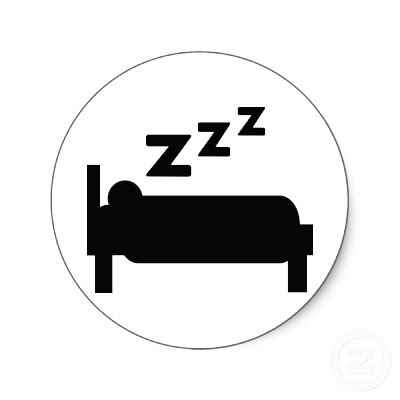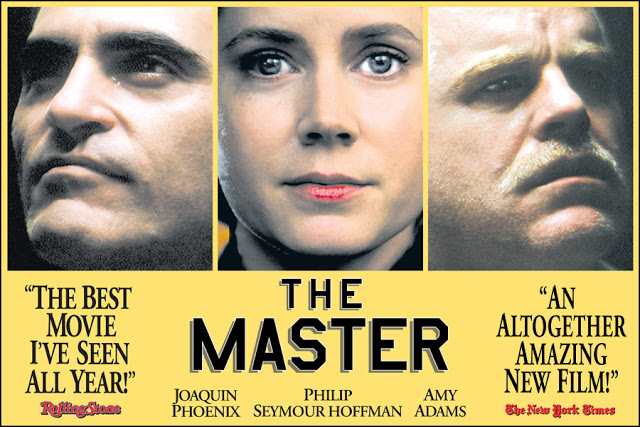After I sat all the way through the adventures of Marky Mark and his 13-inch prosthetic penis in Boogie Nights, I thought I was finished with Paul Thomas Anderson films, but at the behest of a woman I was in a new relationship with, I absorbed the bullshit and bombast of her favorite film, Magnolia (though I remember very little of it), several years after it came out. As I watched, I remember thinking that the woman I’d dated years earlier who’d liked the same films I had (her favorite was The Unbearable Lightness of Being ) was otherwise a terrible girlfriend. So maybe the fact that this other woman (who would later become my spouse) loved Magnolia was a good sign. I was, of course, wrong.
Anderson’s latest film, Inherent Vice, takes place in a southern California hippie community just as the feel-good counterculture of the ’60s was slowly souring into the disillusionment and heroin and cocaine addiction of the ’70s. The main character, Doc Sportello (Joaquin Phoenix, decades too old for the role–the counterculture’s catchphrase was “Never trust anyone over 30”) lives by the beach and smokes a lot of pot, but he also works as a private detective, which is why his ex “old lady” Shasta (Katherine Waterston) comes to his place, in a sojourn from what was then known as the “straight” world, her hair pulled back with a barrette wearing the kind of clothes, the narrator (musician Joanna Newsom) notes, she had always sworn she never would. Shasta seems to be on the brink of tears as she says, “I need your help, Doc,” and we in the audience can imagine a complex history between these two.

In 1970, hippies were so commonplace, the guy who drove the ice cream truck in my suburban Kansas neighborhood had a ponytail, a beard and a mustache, but in another few years hardly any hippies would be left, except for some scattered on communes, farms and “intentional communities.” Ray Magliozzi explained the end of the counterculture era as: all the previously “unemployed bums” and “wackos” “went out and got jobs.” Although writer-director Olivier Assayas’ Something In The Air touches on a similar sea change in Europe, someone could make a good film about this largely unexplored time of transition (which could also be described as a defeat) in the US–but Vice is not that film and Anderson is not that director.
I don’t need a tight plot to have a good time at the movies, but I fell asleep during Vice. I couldn’t resist closing my eyes when Owen Wilson (whom many of us wish would go back to writing films: Rushmore and The Royal Tenenbaums are much better than any film he’s only acted in) playing one in a long line of the film’s ridiculously named supporting characters (none of whom I could keep track of or give a shit about) says, “And your question is: which side am I on?”
I can count on one hand the times I’ve fallen asleep in a theater; at Vice I suspect my body was telling me this film was never going to get better, so why not do something more worthwhile with my time? I did rouse myself to catch the end of the scene and the rest of the film, but it never did improve. All of its scenes, save one, would have the same coherence if its talented actors barked instead of saying their lines–and if they did so, some Anderson fanboy would still (as I overheard one after the screening I attended) insist to the unlucky woman walking alongside him, “He’s playing with narrative!”

Anderson has claimed in interviews that he was influenced by Robert Altman’s The Long Goodbye and the original book’s author Raymond Chandler’s famous explanation to the screenwriters (including William Faulkner) who were adapting another of his novels, The Big Sleep, that he had no idea who the killer was. But Anderson hasn’t learned the first thing from either film or from Chandler who might not have known who the murderer was, but knew his characters inside and out, and let his readers know them too. Altman understood the value of a good script: he asked the same woman screenwriter who had adapted Sleep, Leigh Brackett to write Goodbye. Altman was also famous for encouraging his actors to improvise, but in his very best work (like Goodbye and McCabe and Mrs. Miller) he never sacrificed a deep attention to even minor characters’ moods and motivations–and probably also left a lot of flat, improvised dialogue on the cutting room floor. Altman knew that the audience needed to have a sense of the characters’ inner justifications, even if the audience disagrees with them or is shocked by them (as with the brutal violence against women Marlowe’s friend Terry Lenox and the gangster Marty Augustine perpetrate during Goodbye). Altman was a notorious pothead himself who was a part of the new school of directors who were able to thrive in the ’70s as a direct aftereffect of the counterculture, but even in his comedies (like M*A*S*H) he didn’t surrender story and character to some sort of vague, giggly, stoner aesthetic the way Anderson does in Vice.
For reasons I can’t fathom, Anderson always attracts good actors to his films and seeing the ones in Vice struggle to find something worthy in his shitty (Oscar-nominated!) script (based on the novel by Thomas Pynchon, whose work I’ve never read and, if it’s anything like the dialogue and narration in this film, never will) is painful. In odd moments with a gesture or line reading they succeed–Jena Malone chomping her teeth and Eric Roberts when he first catches the eye of Phoenix, but these shots last seconds and the movie lasts two and half hours. The only sustained rapport two characters have with each other (and the only time they connect with the audience) is in the scene when Shasta returns to Doc’s bungalow with her hair loose wearing the outfit the narrator has told us she wore when they were together. Waterston and Phoenix are both excellent as they talk and drink beer, sustaining a tension and a melancholy otherwise absent from the film. The sex they end up having isn’t the hearts and flowers we would expect from hippies either. But one good scene can’t save Inherent Vice, which seems more like a bet than a film. I can imagine Anderson stating to one of his cohorts, “$100 says I write a script that makes no sense and still get the money to make a movie out of it!” He won and everyone else–not just the audience but all the women and people of color whose great, coherent scripts are left unproduced–lost.
[youtube_sc url=”https://www.youtube.com/watch?v=wZfs22E7JmI” iv_load_policy=”3″]
___________________________________________________
Ren Jender is a queer writer-performer/producer putting a film together. Her writing. besides appearing every week on Bitch Flicks, has also been published in The Toast, RH Reality Check, xoJane and the Feminist Wire. You can follow her on Twitter @renjender














